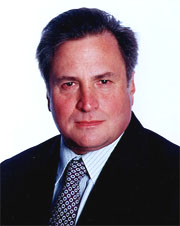 By Dick Morris December 15, 2004
This year, the nation's political process was turned upside down as the elites lost power and the masses of average voters gained it. "Mass communication" usually denotes the few speaking to the many through the journalistic and electronic media that they control. Now it must be redefined as the masses communicating and imposing their views on the elites, often over the furious objections of their former masters. The defeat of the networks in the war of CBS versus the bloggers is one of the most dramatic illustrations of this new political dynamic. All of Dan Rather's men could not put over a forgery of Bush's National Guard record on America's bloggers, who eventually forced the CBS anchor from his perch atop our politics. The way a handful of Swift boat Vietnam veterans with only a few hundred thousand dollars among them were able to defeat the entire propaganda apparatus of the Democratic Party and nullify the effect of a four-day national convention with its extensive panoply of stars and massive media coverage is another example of the emerging people power. And when the national elite media broke the October surprise - The New York Times/CBS story of the disappearing munitions from an Iraqi storage site - the administration's denials and explanations were broadcast so widely by the talk-radio hosts and Internet bloggers that the story first was blunted and then backfired on the Democrats. The final manifestation of people power came on Election Day, when Republicans rallied 1.4 million voters to work at getting out their voters in swing states. This massive outpouring of volunteers, reminiscent of the 1964 Goldwater and 1972 McGovern campaigns combined, has never happened in any campaign of the past 30 years. While Democrats relied mainly on paid workers and hired legions of lawyers to prepare for the challenges to voters that Republicans threatened but never actually lodged, the GOP created a gigantic national organization to funnel manpower into swing states, which generated a record turnout of GOP loyalists. If people power was the big winner of the 2004 elections, money power was the big loser. With a record amount of money spent in the 14 swing states - and almost nothing in the other 36 - the vote tabulations show how little money mattered. Bush ran 2.6 percent better in the swing states than he did in the same states in 2000 and 2.9 percent better in the non-swing states where no money was spent. All of George Soros's millions and the vast sums spent by the 527 committees, on both sides, made very little difference. Indeed, the real losers of 2004 were the parties and the presidential campaigns. In past elections, the vast majority of inputs that determined the outcome of the vote came from the two party organizations or from the candidates and their committees. But in 2004, the campaigns lost control over the election. Many new forces emerged, quite beyond their control, to shape the outcome and form public opinion. Bookstores were filled in the past year with volumes on both sides of the struggle. Tatum O'Neal and Bob Dylan couldn't get a word in edgewise as the likes of Richard Clarke and the Swift boaters dominated the best-seller list. Michael Moore - a man neither political party wants to touch - showed his incendiary film, "Fahrenheit 9/11," to tens of millions with the complicity of liberal movie chains. Less well-endowed, his critics and I circulated hundreds of thousands of copies of the rebuttal "FahrenHYPE 9/11" (still available at www.overstock.com). Talk radio, Fox News, and Newsmax.com all circulated an alternative view from the networks and the elite newspapers, creating a sort of Radio Free America that rebutted the distortions of the mainstream media. And then there were the bloggers. Every week, every day, everybody got first a few and then a deluge of blogs from friends and family about the election. Websites offering daily commentary proliferated. These informal, unpaid, unedited, unsanctioned expressions of opinion, a kind of political spontaneous combustion, came to dominate the dialogue of 2004. In a way, this mass expression
of grassroots opinion has its parallel in the financial markets,
which have put global economics out of the control of presidents,
prime ministers, chancellors and even international bankers.
The markets have ruled economics for a decade now. In 2004, public
opinion, spontaneously generated, came to rule politics. Dick Morris at dmredding@aol.com Dick Morris was an adviser to Bill Clinton for 20 years. Look for his new book, "Because He Could" about Bill Clinton. All Rights Reserved. Distributed exclusively by Cagle, Inc. www.caglecartoons.com to subscribers for publication.
|
||
